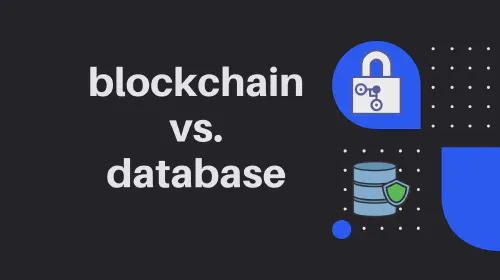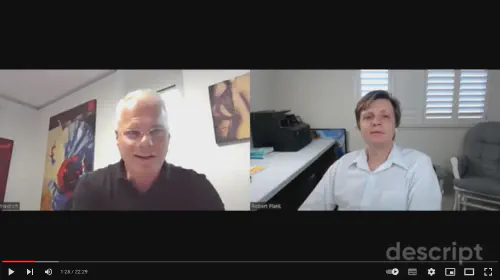The Morality of Hacking: Cyber Ethics Uncovered - Blog Post on Hacking Ethics
Salomon Kisters
Jun 29, 2023This post may contain affiliate links. If you use these links to buy something we may earn a commission. Thanks!
In today’s world, technology is getting better and better. And people are talking a lot about whether it’s right or wrong to hack.
When we use the internet more and more, our personal information becomes more at risk and people can try to attack us online. This leads to questions about whether hacking is right or wrong and who is responsible.
In this blog post, we will explore the different ideas about hacking. We will talk about “white hat” hackers and the difference between protecting us and hurting others online.
We will look at the tough choices that come up in this digital age. Come along with us as we try to make sense of hacking and think about what’s right and wrong.
The Ethics of Hacking
The world has become more connected because of technology. This has led to more talk about hacking and whether it’s right or wrong. Some people think hacking is always wrong, while others think it can be good if it’s done responsibly. In this section, we will talk more about hacking and the ethical problems that come with it.
One big issue when talking about hacking ethics is the difference between “good” hackers and “bad” hackers. Good hackers use their skills to find weaknesses in computer systems and help make them safer. They are like defenders of the internet. But bad hackers use these weaknesses to do bad things or get personal gain.
But sometimes it’s hard to know which one a hacker is. Some hackers start with good intentions, but their methods and reasons can blur the lines. Is it okay to break someone’s privacy or hurt computer systems to do something good?
Also, it’s hard to know who is to blame when a hacker does something bad. Hackers can stay hidden and do things from anywhere in the world. So who should take responsibility for what they do? The hacker or the organization that didn’t protect their system?
There is also the question of whether hacking is fair. Is it okay to break into someone’s accounts to find out if they did something wrong? Hacking can help find corruption or help investigations, but we shouldn’t forget that it can also hurt people and invade their privacy.
Technology is always changing, which makes the ethics of hacking even more complicated. As new weaknesses come up and defenses get stronger, the ethical questions about hacking will keep changing too. We need to always think about hacking ethics and change how we react to it.
Hacking is closely tied to technology, and it always challenges our sense of right and wrong. We need to think carefully and know what could happen when we make choices about hacking. Let’s explore the complex world of hacking ethics and try to find out where the lines of right and wrong are.
The Impact of Hacking on Individuals and Society
Hacking affects people a lot. It can make individuals lose important personal things like money and information. It can also make them feel unsafe. Hackers can break into personal accounts and take credit card information, social security numbers, and passwords. This is called identity theft and it can be really bad. It can make people feel really bad and scared.
Hacking can also mess up people’s privacy. Hackers can take over webcams and other things that watch people. This invades people’s personal space and takes away their privacy. It can make people feel really sad and like they can’t trust anyone.
Hacking can also cause problems for the whole society. It can break important things like power grids and communication networks. This can make things stop working and make life really hard for a lot of people. It can even put the whole country’s security at risk.
Hacking can also make people stop trusting important things in society. When big organizations like the government or banks get hacked, people stop believing in them. This can mess up how society works and make things worse for a long time.
Hacking doesn’t just affect individuals and society, it can also cause problems between countries. When countries hack each other, it can make things really tense. They can even start attacking each other online. This can steal important things like ideas, government secrets, and military information. It can cause big problems in the world.
In the end, hacking has a big impact on individuals and society. It makes things unsafe, takes away privacy, messes up trust, and can even cause problems between countries. We need to think about these problems and find ways to make things safe and protect everyone.
Balancing Security and Privacy
The debate about hacking and ethics boils down to finding the right balance between security and privacy. It’s important to keep people safe, but also to respect their right to privacy. So, where should we draw the line?
In our digital world, governments and organizations are always looking for ways to improve cybersecurity and protect against threats. They use encryption and data monitoring systems to detect and stop cyber attacks. But sometimes, this focus on security means invading people’s privacy.
To address these concerns, we need laws to regulate how much privacy can be sacrificed in the name of security. We have to understand the risks and consequences of too much surveillance. It’s all about finding the right balance between protecting people’s rights and keeping the country safe.
It’s hard to find this balance because it’s different depending on the situation. Something that’s acceptable for national security might be seen as an invasion of privacy in personal conversations. We need to clearly define the line between protecting society and respecting individual rights.
Some people believe we should have control over our personal information and be protected from unwarranted surveillance. Others think it’s important to prioritize preventing threats and ensuring public safety. But we can’t only focus on one extreme or the other. The right balance means considering both security and privacy.
We need oversight to make sure security measures don’t go too far. Governments and organizations should be reviewed, transparent, and held accountable for any privacy breaches. This way, we can prevent abuses of power.
The World of Ethical Hacking
Ethical hacking, also known as safe hacking, is a practice that aims to find and fix problems in computer systems and networks. Unlike bad hacking, ethical hacking is done with permission and the goal of making things more secure. It’s an interesting world that raises questions about right and wrong in the internet world.
Ethical hackers, who often work for companies, use their skills to pretend to attack computer systems. By trying to break in, they can find weaknesses and fix them before bad hackers can take advantage. This helps companies make their systems stronger and avoid getting hacked.
The work of ethical hackers is very important because cyberattacks are becoming more and more common. By finding problems, they help keep sensitive information safe and protect people, companies, and even whole communities.
But ethical hacking has its own ethical challenges. Even though it has a good goal, it still involves messing with systems and maybe invading privacy. To make sure they do things the right way, many ethical hackers follow strict rules and guidelines.
For example, they always get permission before doing anything, they don’t cause unnecessary harm or damage, and they respect people’s privacy. They don’t try to break in for their own benefit, but to find problems and make things safer.
Ethical hacking is not just for companies. Governments and police also use ethical hackers to find problems in important systems or to investigate cybercrime. This teamwork between ethical hackers and the government shows how important hacking can be for good reasons.
Ethical hacking helps us think differently about hacking. By using their skills for good, ethical hackers make the digital world safer. They show that hacking doesn’t have to be bad and that it can even have a positive impact on cybersecurity.
As technology keeps advancing, ethical hacking will become even more important. As a society, we need to understand how valuable ethical hackers are and support them in their mission to keep our digital lives safe and private!
Legislation and Punishment
Cyber crimes are a big problem but it’s hard for the law to deal with them. Cyber attacks are always changing and it’s difficult to define and classify them.
The internet makes it harder to catch cyber criminals because they can hide and it’s not easy to find evidence. Sometimes, the law has to act quickly to stop more damage, even if they don’t have a lot of evidence.
Lawmakers are trying to make new laws and improve existing ones to deal with cyber crimes, but it’s not easy. Some people think that tough punishments will stop cyber criminals, while others think we should focus on preventing attacks and using new technology.
We need a strategy that combines laws, public awareness, education, and cooperation between different groups. Dealing with cyber crimes is a big challenge, but we have to keep working on it.
Conclusion
In today’s age, hacking is a big issue. Some say it’s good because it exposes problems and helps make things better. But most hacking is bad and hurts people and groups.
We talked about the good and bad of hacking. It’s hard for the law to keep up with changing hacks. Figuring out what is what and catching hackers is hard too.
The law is trying to make new rules and make old ones better to stop hacking. But there is no one answer. Some people want to punish hackers more to stop them. Others think it’s better to teach people and make better technology.
To stop hacking, we need to do a lot. We need new laws, more people who know about hacking, better teaching, and everyone working together. This will make the internet safer.
In the end, hacking is a big problem. We need to keep changing the law and stay ahead of hackers. Finding a balance between protecting people and their privacy is hard. We need to keep working to make the internet better and safer for everyon
Stay informed with the latest insights in Crypto, Blockchain, and Cyber-Security! Subscribe to our newsletter now to receive exclusive updates, expert analyses, and current developments directly to your inbox. Don't miss the opportunity to expand your knowledge and stay up-to-date.
Love what you're reading? Subscribe for top stories in Crypto, Blockchain, and Cyber-Security. Stay informed with exclusive updates.
Please note that the Content may have been generated with the Help of AI. The editorial content of OriginStamp AG does not constitute a recommendation for investment or purchase advice. In principle, an investment can also lead to a total loss. Therefore, please seek advice before making an investment decision.

Democratizing Cybersecurity - A Community Responsibility
Learn all about the importance of making cybersecurity accessible to everyone and how it is a shared responsibility within the community. Learn how democratizing cybersecurity can benefit both individuals and organizations.

Blockchain vs Database: Key Differences Explained
Understand the key differences between Blockchain and Database, from decentralization to security, in this detailed comparison.

Counterfeit Protection With Blockchain [Interview] - OriginStamp.com
Learn how OriginStamp uses blockchain technology to protect against counterfeits and ensure data integrity in this insightful interview.
Protect your documents
Your gateway to unforgeable data. Imprint the authenticity of your information with our blockchain timestamp